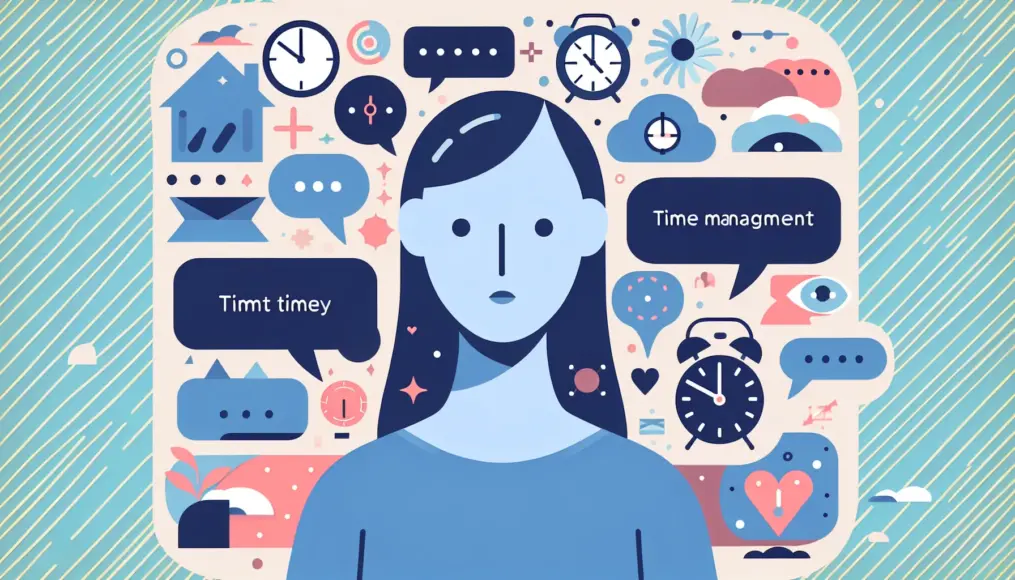Feeling happy is an incredibly important aspect of our lives. But what does it take to truly experience happiness? In this article, we’ll explore the concept of happiness and consider some practical habits that can help you incorporate it into your daily routine.
When you prepare your mind and consciously work towards feeling happiness, life can become much more fulfilling. By nurturing feelings of gratitude and promoting positive thinking, you can pave the way to discovering your own happiness. So, are you ready to embark on a journey towards a happier you?
- Defining Happiness and Its Psychological Approaches
- The Positive Effects of Positive Thinking on Happiness
- Practical Habits to Incorporate into Daily Life
Understanding Happiness
Happiness is an essential emotion we seek in our daily lives. However, its definition varies from person to person, and the way we experience it can be quite diverse. In this chapter, we will explore the meaning of happiness and its significance, as well as examine it from a psychological perspective. By understanding happiness, we can better navigate our mental states and discover healthier lifestyle habits.
The Definition and Importance of Happiness
Happiness refers to a state of feeling satisfaction and joy. The reason many people pursue happiness is that it positively impacts both the mind and body. Experiencing happiness can reduce stress and promote overall health. Additionally, feeling happy enhances our relationships, deepening our connections with others.
While the definition of happiness may differ based on culture and individual values, one common thread is that feeling happy is an indispensable part of our lives. This understanding serves as a motivation for personal growth and the pursuit of a better life.
- Happiness is a state of feeling satisfaction and joy
- Happiness reduces stress and promotes health
- A happy state improves relationships
A Psychological Approach to Happiness
In psychology, happiness is often referred to as “subjective well-being.” This term describes how fulfilled and happy individuals feel about their lives. Research indicates that people who experience happiness tend to have more positive emotions and are better at accepting negative ones. This balance of emotions is key to feeling happy.
Moreover, happiness is deeply connected to our environment and social factors. For instance, supportive relationships and a fulfilling work environment contribute to our sense of happiness. From a psychological standpoint, understanding ourselves and valuing our relationships is crucial for experiencing happiness.

If you’re interested in this topic, you might also enjoy our article on “How to Boost Your Happiness with Daily Habits!” This piece offers practical approaches to enhancing your sense of well-being, helping you lead a richer life. Check it out here.
- Happiness is evaluated as “subjective well-being”
- Balancing positive and negative emotions is important
- The impact of environment and relationships on happiness
Preparing Your Mind for Happiness
To truly feel happiness, it’s essential to prepare your mind first. Recognizing and accepting your emotions, along with nurturing positive thinking, plays a crucial role in this process. In this section, we’ll delve into the significance of acknowledging and accepting your feelings, as well as how positive thinking can enhance your happiness. By equipping yourself with this mental readiness, you’ll find it easier to experience joy in your everyday life.
Recognizing and Accepting Emotions
The first step to feeling happiness is recognizing and accepting your emotions. Throughout our daily lives, we encounter a wide range of feelings, including negative ones. Instead of ignoring or suppressing these emotions, it’s important to acknowledge and accept them. Doing so helps you understand yourself better and maintain emotional balance.
Moreover, accepting your emotions can lead to personal growth. By understanding your own feelings, you can improve your relationships with others, ultimately making it easier to experience happiness. Deepening your understanding of emotions is crucial for preparing your mind.
- Recognizing emotions is the first step towards happiness
- Accepting negative feelings is essential
- Understanding emotions leads to personal growth
The Power of Positive Thinking
Positive thinking is an incredibly effective strategy for cultivating happiness. When you adopt a positive mindset, you develop the ability to find small joys in your daily life. For instance, even when faced with challenging situations, you’ll be able to uncover opportunities for learning and growth.
Additionally, positive thinking helps reduce stress and maintain mental well-being. By viewing things through a positive lens, you can also improve your relationships with those around you, fostering better connections. To feel happier, it’s beneficial to practice positive thinking consistently in your daily life.
- Positive thinking enhances your ability to find small joys
- Contributes to stress reduction and mental health
- Leads to improved relationships
Incorporating Habits of Happiness into Daily Life
To truly feel happy, it’s vital to integrate specific habits into our everyday routines. Practices like gratitude and mindfulness are prime examples. By adopting these habits, you can enhance your mental well-being and increase the moments of joy in your daily life. In this section, we’ll explore how to effectively practice gratitude and utilize mindfulness.
Practicing Gratitude
Practicing gratitude is an incredibly effective way to foster happiness. By cultivating a sense of appreciation in our daily lives, we nurture positive emotions. For instance, if you make it a habit to recall three good things that happened each day before going to bed, it can lead to a more peaceful mind and a greater capacity to feel happiness.
Moreover, embracing gratitude heightens our awareness of the people and environment around us. By recognizing the goodness in our surroundings, we can forge deeper connections, ultimately enhancing our overall sense of fulfillment. Thus, practicing gratitude forms a crucial foundation for experiencing happiness.
- Gratitude practice nurtures positive emotions
- Remembering daily good moments is effective
- Deepens connections with those around us
Utilizing Mindfulness
Mindfulness is a practice that focuses your awareness on the present moment. By incorporating this technique into daily life, you can reduce stress and enhance your ability to feel happiness. Mindfulness helps free you from worries about the past or future, fostering an appreciation for the here and now.
You can practice mindfulness through techniques like deep breathing and meditation. For example, paying attention to the taste and aroma of your food during meals is a simple way to engage in mindfulness. By weaving mindfulness into your everyday routine, you can significantly increase the moments that bring you joy.
- Mindfulness reduces stress
- Focusing on the present moment is key
- Easy ways to incorporate it into daily life
Steps to Maintain Your Happiness
To truly experience happiness, it’s essential to sustain that feeling over time. Reevaluating your relationships and setting goals that encourage personal growth are effective ways to keep happiness alive. In this section, we’ll explore how to reassess your connections with those around you and how to set goals that foster your own development. By taking these steps, you can prolong those joyful moments in your life.
Reevaluating Relationships
The relationships we have significantly impact our happiness. When we maintain positive connections with the people around us, we’re more likely to feel happy. Thus, it’s important to reassess your relationships with those who matter most to you. Engage actively with those who bring positive influences into your life, while creating some distance from those who may have a negative impact.
Building strong relationships also requires prioritizing communication. By listening to others and showing empathy, you can deepen trust within your connections. This leads to more pleasant interactions, increasing your opportunities to feel happiness.
- The impact of relationships on happiness
- Focus on engaging with positive influences
- Deepening trust through communication
Setting Goals for Personal Growth
To encourage personal growth, setting specific goals is crucial. Having goals gives you a sense of achievement and boosts your self-esteem. These positive feelings lay a foundation for experiencing happiness. Your goals can range from short-term to long-term aspirations.
Moreover, if you can recognize your growth during the process of achieving your goals, you’ll likely feel even happier. Goals also provide a great opportunity for self-reflection. By considering what matters to you and the direction in which you want to grow, you can lead a more fulfilling life.

If this article piqued your interest, you might also enjoy our piece on goal setting, where we provide specific examples and practical methods: “Goal Setting for Self-Development: Concrete Examples and Practical Methods”. By setting clear goals, you can foster personal growth and build a foundation for lasting happiness.
- Specific goal setting promotes personal growth
- A sense of achievement boosts self-esteem
- Recognizing your growth enhances feelings of happiness
Summary
To truly feel happiness, it’s crucial to first understand yourself and prepare your heart. By recognizing and accepting your emotions, along with cultivating positive thinking, you can become more attuned to happiness in your everyday life. Additionally, incorporating practices of gratitude and mindfulness can enhance your ability to discover the small joys that each day can bring.
Moreover, reassessing your relationships and setting goals that encourage personal growth are vital components for maintaining happiness. Building strong connections with others fosters emotional stability and enhances your overall quality of life. By taking these steps, you’ll be able to prolong those moments of joy in your life.
- Preparing your heart is essential for feeling happiness
- Incorporate gratitude and mindfulness into your daily routine
- Reassess relationships and set goals to maintain happiness
We encourage you to try out these methods to discover your own happiness. We’d love to hear your experiences and thoughts on happiness, so feel free to share them in the comments!












































Comment